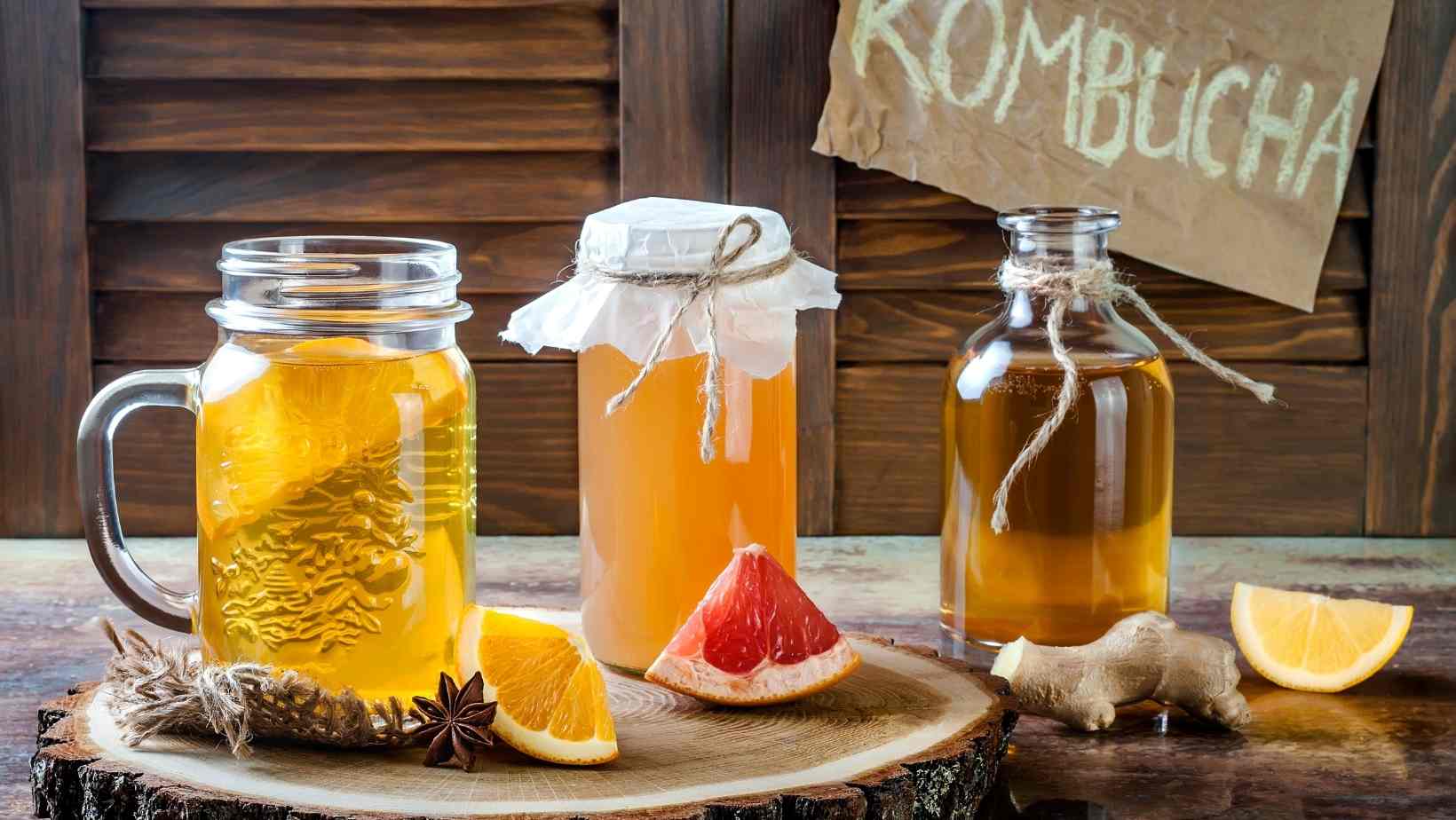What is kombucha?
kombucha is a fermented beverage that is somewhat bubbly and created from sweetened tea and a special culture known as a scoby,' which is an abbreviation for symbiotic culture of bacteria and yeasts.' The bacteria and yeasts in the scoby break down the sugar and produce ethanol and acetic acid as byproducts. The acetic acid in kombucha is responsible for the beverage's unique sour flavour.

An average 100ml serving contains the following nutrients:
- 16 kcals/67KJ
- 0.0g protein
- 3.0g carbohydrates
- 3.0g sugar
The nutritional value of a product will vary depending on its composition.
What is the best way to produce kombucha?
Kombucha is typically produced using the following ingredients:
- Sugar
- Cold filtered water
- Black or green tea (bags or loose leaf)
- Scoby – purchased online, or from an existing batch of kombucha
To produce kombucha, the tea and sugar are soaked in boiling water for a short period of time before being added to the scoby. This is covered and let ferment for up to a week before eating it. The combination is then placed in an airtight jar with a little additional sugar and let to sit for a few more days — the longer it is kept, the fizzier it will grow – before serving. Flavorings, like spices or fruit, may be added at this time if desired.
What are the five most important health benefits of kombucha?
1. Probiotics may be obtained from this source
Fermented foods, such as yoghurt, sauerkraut, and kefir, all contain living microorganisms that are beneficial to the body. Because kombucha is the result of fermentation, it has a high concentration of probiotic bacteria. These probiotic bacteria, when administered in particular doses, may aid in the restoration of a healthy balance of bacteria in the gut and the improvement of digestion. However, there has not been enough research conducted so far to determine if kombucha contains sufficient numbers of these beneficial bacteria to be considered a potent probiotic. More importantly, certain variables, such as how the kombucha is created and how long it is allowed to ferment, will affect the quantity and types of probiotic microorganisms found in the drink.
2. It has the potential to be a source of antioxidants
These are chemicals that help protect the body's cells and tissues from the oxidative damage produced by free radicals. Free radicals are a typical by-product of the body's functions, but the goal is to reduce their influence on the body by ingesting foods and beverages that are high in antioxidants. Tea, particularly green tea, is high in a class of antioxidants known as polyphenols, particularly catechins, which protect against free radical damage. Although there are a lot of elements that may impact the antioxidant capabilities of kombucha, the tea from which it is created as well as the length of time it is fermented are among the most important.
3. It is possible to add vitamins and minerals
It includes trace levels of vitamins and minerals created by the yeast during the fermentation process, including vitamin C and the B group of vitamins such as B1, B6, and B12. Kombucha is a fermented beverage made from fermented tea. It is probable that levels will differ across goods.

4. It has the potential to be anti-fungal
Acetic acid is produced as a by-product of fermentation, and it is believed that this, along with other substances present in green and black tea, may help to prevent the development of less desirable bacteria and yeast while encouraging the growth of more helpful strains of bacteria and yeast.
5. It has the potential to improve heart health
The use of kombucha, in combination with the consumption of beneficial polyphenols found in tea, particularly green tea, seems to enhance cholesterol control and minimise the chance of developing heart disease, according to animal studies.
Is kombucha a safe beverage for everyone to consume?
The beverage kombucha is classed as a functional food because of the possible benefits it may have when consumed as part of a diverse and balanced diet; nonetheless, it may not be suited for everyone and may have certain dangers.
Kombucha is not recommended for individuals who are pregnant or nursing, as well as those who have a weakened immune system. The fact that there haven't been many human clinical trials to confirm its safety and effectiveness must be stressed again. There have been some complaints that excessive drinking might result in unpleasant side effects such as stomach discomfort, nausea, and dizziness, among other things. Because of the buildup of organic acids, prolonged fermentation is not suggested because the quantities of these acids may reach hazardous levels.
Due to the high histamine content in fermented foods, such as kombucha, those who suffer from histamine sensitivity should be cautious about drinking the beverage because it may worsen their symptoms.




